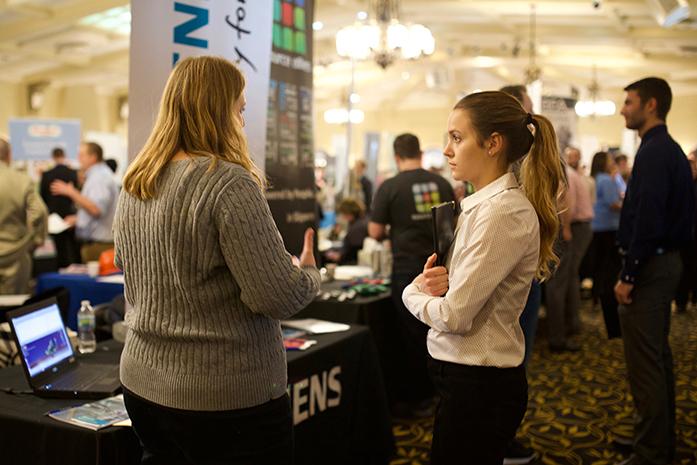By Aja Witt
The nation saw an increase in female engineers from the 1980s to the early 2000s, but it hasn’t seen much progress since then, according to the Society of Women Engineers. But all of that could change with the rise in the number of female engineering majors at colleges and universities across the United States.
According to Jackie Ricke, the president of the University of Iowa’s Society of Women Engineers, the national average for female engineers sits at around 20 percent.
At the UI, the numbers for female engineers over the past five years has consistently been higher than the national average, and they show signs of continuing.
In the fall of 2016, 25.5 percent of engineers majoring at the UI were women. This number is up from 23.4 percent in the fall of 2014, and 22 percent in the fall of 2012.
Ricke said this increase and the above-average percentage, is largely due to the UI’s biomedical engineering program and the increase in outreach initiatives targeted at women and minorities.
The UI Society of Women Engineers is just one of many student organizations aimed at increasing diversity in the UI College of Engineering. The Society of Hispanic Professional Engineers, Women in Science and Engineering, and the National Society of Black Engineers all exist at the UI to help marginalized populations succeed in the profession.
Siddig Siddig, the president of the National Society of Black Engineers, said the program has helped him with interviews, self-confidence, and connecting with other black engineers in the field he hopes to someday join.
“My freshman year, I went to a regional conference,” Siddig said. “The first thing I remember is that it was really empowering … There were over 10,000 black engineers there, and you’re just like, ‘wow, there are so many other people here,’ so many other black engineers.”
Siddig is a part of the near 17 percent of people of color with the UI engineering school in the fall of 2016. This number has increased from 14 percent in the fall of 2014 and 10 percent in the fall of 2012.
Engineering Dean Alec Scranton said he is happy with the “tremendous increases in the number of women and minorities in the past several years.”
By the number, 314 undergraduate women were members of the engineering school in 2010 versus 584 undergraduate women in 2016. Undergraduate minorities with the college increased from just 94 in 2010, to 288 in 2016.
Scranton said he hopes this upward trend will continue now that the UI has outreach programs extending to middle- and high-school students, as well.
Alyssa Esquivel, secretary for the Society of Hispanic Professional Engineers, said she decided to pursue engineering out of high school, and admitted that while majoring in engineering can be difficult, it is also quite rewarding.
“It’s rare that we get a class that doesn’t require a ton of homework and studying,” Esquivel said. “But it also builds a great work ethic and perseverance, which is essential to success.”



